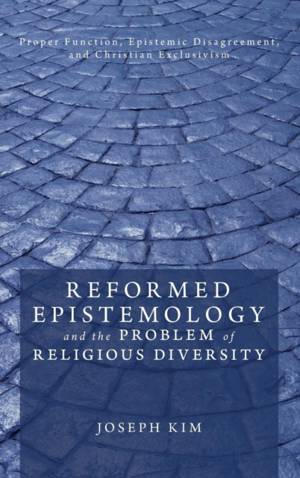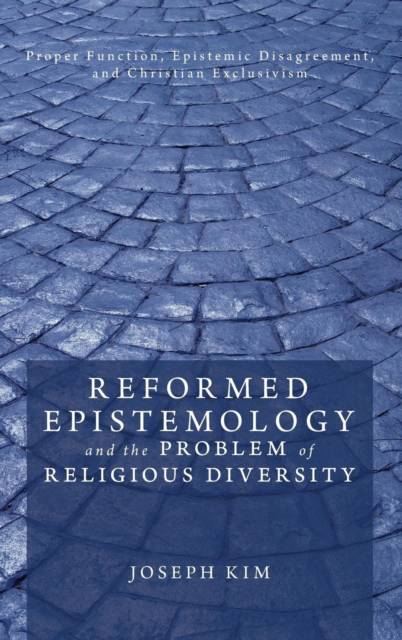
- Afhalen na 1 uur in een winkel met voorraad
- Gratis thuislevering in België vanaf € 30
- Ruim aanbod met 7 miljoen producten
- Afhalen na 1 uur in een winkel met voorraad
- Gratis thuislevering in België vanaf € 30
- Ruim aanbod met 7 miljoen producten
Zoeken
Reformed Epistemology and the Problem of Religious Diversity
Proper Function, Epistemic Disagreement, and Christian Exclusivism
Joseph Kim
Hardcover | Engels
€ 52,95
+ 105 punten
Uitvoering
Omschrijving
Can Christian belief be warranted? Can someone hold to Christian exclusivism even in the face of mutually exclusive religious belief systems? In contemporary philosophy of religion there has been much debate about whether the diversity of mutually exclusive religious beliefs is a good reason to give up any form of religious exclusivism. Amidst this discussion, the Christian exclusivist claims that the tenets of Christianity are true, and mutually exclusive religious views are false. Opponents of Christian belief argue, however, that the diversity of mutually exclusive religious beliefs is a good reason to give up one's Christian exclusivism. This is the problem of religious diversity for Christian exclusivism. In this book, Joseph Kim defends Christian belief in conversation with the problem of religious diversity and argues that mutually exclusive religious beliefs do not serve as defeaters for Christian belief. Kim engages Alvin Plantinga's proper function account of warrant and argues that the Christian exclusivist need not give up her Christian belief when faced with the problem of religious diversity even when she is unable to give an argument for the truth of Christian belief to those that disagree. This book also explores the areas surrounding the problem of religious diversity and serves as a good introduction to the central issues that intersect contemporary epistemology and the philosophy of religion.
Specificaties
Betrokkenen
- Auteur(s):
- Uitgeverij:
Inhoud
- Aantal bladzijden:
- 124
- Taal:
- Engels
Eigenschappen
- Productcode (EAN):
- 9781498256520
- Verschijningsdatum:
- 8/06/2011
- Uitvoering:
- Hardcover
- Formaat:
- Genaaid
- Afmetingen:
- 152 mm x 229 mm
- Gewicht:
- 340 g

Alleen bij Standaard Boekhandel
+ 105 punten op je klantenkaart van Standaard Boekhandel
Beoordelingen
We publiceren alleen reviews die voldoen aan de voorwaarden voor reviews. Bekijk onze voorwaarden voor reviews.








